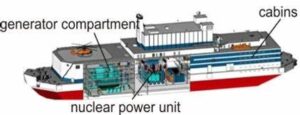
by Bill O’Keefe
Dominion Energy, with the blessing of the Legislature is in the process of building a monstrous wind farm off the coast of Virginia. It will be 27 miles offshore and occupy an area of over 176 square miles — 92% as large as Richmond. When fully built, there will be 220 windmills, each standing 200 feet above water level. The cost is currently estimated to be $7.8 billion but cost overruns are inevitable. Think about this long enough to form a mental picture of what this will look like.
Since the Legislature has mandated a net zero emission future in the coming decades, Dominion is more than willing to take up the challenge and accommodate the Legislature’s dream. Not only is Dominion guaranteed a rate of return on the power generated but it also profits from capital construction expenditures. Non-regulated corporations should be so lucky. And, if it turns out that the windfarm doesn’t produce as promised or is made obsolete by technology or more accurate climate science, it won’t be Dominion that takes the loss, it will be Dominion’s customers.
When all is said and done, our electricity rates will be much higher than they are today — 12 cents per Kwh, well below states like California committed to the zero-carbon path. California’s residential rates are almost 20 cents per Kwh and rising. One estimate says they will rise to 40 cents when the natural gas ban is fully implemented.
Given this dismal outlook, it is reasonable to ask if there is a better alternative? The answer is probably a resounding yes. One such alternative that should be evaluated and compared to the windfarm boondoggle is small offshore nuclear reactors.
Seaborg Technologies believes that as soon as 2025, it can provide floating barges fitted with advanced nuclear reactors for use by developing countries. The first ship of this kind began supplying heat and electricity to the Russian port of Pevek on the East Siberian Sea in December 2019. Seaborg has said that its 100-megawatt reactor would take two years to build and would generate electricity that would be cheaper than coal-fired power.
A Physics Open paper by Esam Hussein states that “Most emerging small modular reactors incorporate safety and operational features that were tried and tested during the pioneering years of nuclear power, but the concept of modularity is still ambiguous. … As this was a critical review, all aspects of the technology had to be considered and analyzed.”
NuScale has received a Nuclear Regulatory Commission certification for its small modular reactor which could be mounted on platforms instead of barges. NuScale grew out of research at Oregon State University and has received substantial Department of Energy funding. Its reactor is a 76-feet-tall, 15-foot-wide steel cylinder capable of producing 50 megawatts of electricity. To generate as much electricity as Dominion’s windfarm, 52 modular reactors would be needed. Those would occupy about 3,120 acres or 4.9 square miles or 3% of the area needed by Dominion.
Shouldn’t the Legislature at least commission a study to compare the two options on a total systems basis? Being 27 miles offshore, the alleged risk of a nuclear accident is not very compelling. The cost that consumers will pay for windfarm generated electricity is.
In terms of risk management, the Democrat-controlled legislature has been infected with a bad case of climate ideology and the precautionary principle which, according to MIT meteorology professor Dick Lindzen, actually means “everything is connected to everything; everything is uncertain, thus anything may cause anything, and thus we should do something abou
We unfortunately live in a world where if you don’t kneel at the altar of the worst-case scenario, you are accused of being in favor of doing nothing. While that is nonsense, it is a way for advocates/zealots to avoid the hard process of evaluating alternatives and taking cost-effective risk management actions for which there are many.
William O’Keefe, a Midlothian resident, is founder of Solutions Consulting and former EVP American Petroleum Institute.

Leave a Reply
You must be logged in to post a comment.